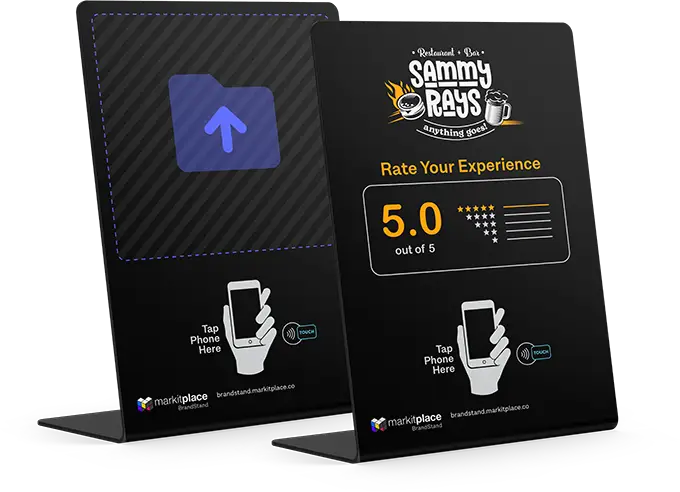
Sales Tracking – Software, Tracking Your Leads, and More
Sales tracking is the heartbeat of any thriving business. It involves monitoring and analyzing your sales data to understand performance trends, customer preferences, and market dynamics. Without it, you’re navigating in the dark, missing out on crucial insights that could drive your business forward. Having a great sales tracker system in place not only helps in forecasting future sales but also in identifying areas that need improvement, ensuring that your sales strategy is always aligned with market demands.
Sales Tracking Software
In today’s digital age, sales tracking software has become a vital tool for businesses of all sizes. These platforms offer a comprehensive view of sales data, automate the tracking process, and provide real-time insights. They often include features like lead and opportunity tracking, pipeline management, and reporting tools. Popular examples include Salesforce, HubSpot, and Zoho CRM. These tools help businesses streamline their sales process, improve customer relationships, and make data-driven decisions.
Check out this comparison chart of 10 of the most popular sales tracking software systems:
| Rank | Sales Tracking Solution | Free Version Available | Notable Features | |
|---|---|---|---|---|
| 1 | Salesforce | No | Comprehensive CRM system, advanced analytics, customization options | |
| 2 | HubSpot CRM | Yes | User-friendly interface, excellent for inbound marketing, integrates with HubSpot’s marketing and service software | |
| 3 | Zoho CRM | Yes | Good for small to medium-sized businesses, strong automation features, social media integration | |
| 4 | Pipedrive | No | Simple interface, strong pipeline management features, great mobile app | |
| 5 | Freshsales | Yes | AI-based lead scoring, built-in phone and email, activity capture | |
| 6 | Microsoft Dynamics 365 | No | Highly customizable, integrates well with other Microsoft products, good for large businesses | |
| 7 | Salesflare | No | Automated data input, strong integration with other tools, focus on small and medium businesses | |
| 8 | Marketo | No | Strong in lead management and email marketing, great for B2B companies | |
| 9 | Salesforce IQ (formerly RelateIQ) | No | Smart CRM system, automatic data capture, predictive analytics | |
| 10 | Insightly | Yes | Good for project management, G Suite and Microsoft Office integration, mobile app available |
Each of these platforms has its unique strengths, so the best choice depends on your business needs, size, and sales process. It’s always recommended to take advantage of free trials or free versions to test out which solution fits your requirements best.
Sales Tracking App
For on-the-go sales teams, sales tracking apps are a game-changer. These mobile applications provide flexibility and instant access to critical sales data, regardless of location. Sales representatives can update leads, track sales activities, and access customer information directly from their smartphones. Apps like Pipedrive, Freshsales, and Salesflare are known for their user-friendly interfaces and robust functionality, enabling sales teams to stay connected and productive, even when they’re out of the office.
Sales Lead Tracking
Sales lead tracking focuses on monitoring potential customers from the moment they show interest until they make a purchase. This process helps sales teams prioritize leads, tailor their approach, and nurture relationships effectively. Tracking leads involves understanding their needs, preferences, and behaviors, allowing sales teams to deliver personalized experiences and increase the likelihood of conversion. Tools like Marketo and Salesforce provide advanced lead tracking features that can significantly boost the efficiency of your sales funnel.
Sales Activity Tracking
Sales activity tracking is about recording and analyzing the daily activities of your sales team. This includes calls made, emails sent, meetings scheduled, and deals closed. By keeping track of these activities, managers can identify high-performing strategies, areas for improvement, and training needs. It also fosters accountability and transparency within the team. Tools like Salesloft and Outreach.io specialize in this area, offering detailed insights into sales activities and team performance.
Tracking Sales
Beyond tracking leads and activities, tracking overall sales is crucial for long-term success. This involves analyzing sales volumes, revenue, customer acquisition costs, and other key performance indicators. It gives you a bird’s-eye view of your business’s financial health and helps in making informed strategic decisions. Tools like QuickBooks and Xero offer comprehensive sales tracking capabilities, integrating financial data for a complete picture of your sales performance.
Customer Relationship Management (CRM)
At the core of effective sales tracking is robust customer relationship management. CRM systems help in organizing customer information, tracking interactions, and managing customer relationships throughout their lifecycle. By leveraging CRM data, businesses can better understand customer needs, improve customer service, and increase customer loyalty. Platforms like Salesforce and Microsoft Dynamics 365 are widely used for their advanced CRM capabilities.
Sales Forecasting
Sales forecasting is predicting future sales based on historical data, market trends, and sales performance. Accurate sales forecasts enable businesses to make informed decisions about inventory, budgeting, and resource allocation. Advanced sales tracking tools often come with forecasting features, using AI and machine learning to enhance the accuracy of predictions. Tools like Clari and Forecast.io are popular for their sophisticated forecasting capabilities.
Sales Pipeline Management
Pipeline management is about tracking and managing the progress of sales opportunities as they move through different stages of the sales process. Effective pipeline management ensures that no opportunity slips through the cracks and helps in prioritizing efforts towards the most promising leads. Sales tracking tools with pipeline management features, like HubSpot and Pipedrive, provide visual representations of the sales pipeline, making it easier to monitor and manage sales progress.
Sales Analytics and Reporting
The final piece of the sales tracking puzzle is analytics and reporting. This involves turning sales data into actionable insights through detailed reports and dashboards. Sales analytics help businesses understand sales trends, customer behavior, and team performance. It allows for a deeper analysis of what’s working and what’s not, enabling continuous improvement of sales strategies. Tools like Tableau and Google Analytics integrate with sales databases to provide advanced reporting capabilities, offering a detailed and data-driven view of sales performance.
Sales tracking is an indispensable part of modern business operations. It’s not just about keeping a record of sales; it’s about understanding your customers, optimizing your sales process, and driving your business towards sustainable growth. Whether you’re a small startup or a large corporation, the right sales tracking approach can illuminate your path to success. Utilizing tools and strategies that align with your business goals will ensure that your sales efforts are not just measured, but also meaningful. Remember, in the fast-paced world of sales, staying informed and agile is key to staying ahead.
- 10 Customer Engagement Strategies – How to Better Engage Your Customers - April 22, 2024
- Sales Tracking – Software, Tracking Your Leads, and More - January 16, 2024
- Sales Pipeline Management Tools – Dashboards, Reports and More - January 15, 2024







